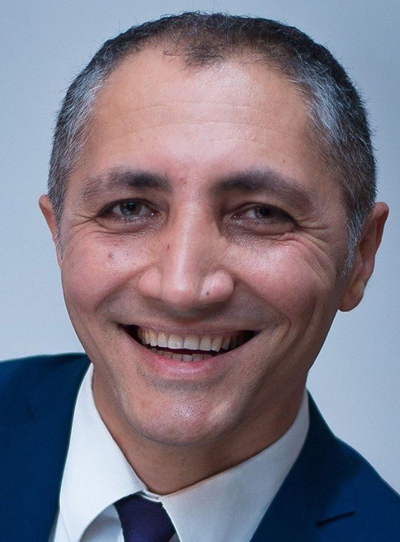Compulsory Health Insurance is a Social Project, Based on the Principles of Solidarity

Vasif Ismail, MD, Lecturer at Medical University of Azerbaijan
- How do you assess the state of healthcare in the country? Can you, please, describe the recent achievements of healthcare in the country? How effective is communication and collaboration with the medical organizations of other countries and the WHO?
Healthcare in Azerbaijan is ineffective in my opinion. It is true there has been a serious development in the range and quality of medical services. Many hospitals and clinics have been built in Baku and even in the regions. However, despite the strengthening of workforce capacity, medical services do not yet meet the needs and the requirements of the people.
Collaboration with other medical organizations, including the WHO, helps to solve common problems, it also helps to exchange knowledge and best practices. At the national level, collaboration between countries can support and intensify national efforts in the development of healthcare, as well as broaden prospects for improving practices and achieving results in other countries. Such exchanges can impact global healthcare policy discussions.
In Azerbaijan, the relations with foreign clinics and international structures operating in the field of medicine, including the WHO (for example, in the field of vaccinations) are quite well established.
- Which segments of the population use free medical services, are these services of justifiable quality? Where do citizens most often go for treatment and mainly for what reasons?
The residents of Aghdash, Yevlakh, Mingechaur enjoy free medical services within a pilot project of Compulsory Health Insurance. In addition, patients with diabetes, renal failure and thalassemia can also enjoy completely free medical services.
However, free healthcare needs improvement. Extortion by medical staff is practiced in public clinics, doctors refer to a shortage of medications (although the hospitals are supplied with all the necessary medications after a relevant list, but which patients have to buy themselves).
Regarding the second part of the question, I will say that most often our citizens leave for Iran and Turkey for diagnostics, treatment and medical examination. This is most likely due to the cost of medical services and medical supplies. It is known that many medications in Iran are much cheaper than here. Taking into account the low level of material wellbeing throughout the country, there is a direct link between the citizens’ medical trips to Iran and their financial situation.
- How does the lack of health insurance affect the health of the population, how can it solve the existing problems? For example, the problem of affordability of medicine for all layers of the population, the improvement of the health of the society as a whole?
Compulsory health insurance is a social project based on the principles of solidarity. It aims at the improvement of healthcare financing, as well as the provision of universal and sustainable health insurance that guarantees reliable, high-quality and efficient medical services to the population.
On November 29, 2017, the President of Azerbaijan signed a decree on additional measures to ensure the use of compulsory health insurance in the administrative territories of the city of Mingachevir and Yevlakh region. This decree envisaged the alignment of medical services with modern requirements, and the improvement of medical service quality through the introduction of compulsory health insurance.
Currently, a pilot project of compulsory health insurance is being implemented in the city of Mingachevir, and in Yevlakh and Agdash regions. The pilot project covers the provision of 1829 medical services, which constitute the basic (main) package of medical services. According to official reports, pilot projects are planned to be implemented in the whole country. However, despite the presidential decree, compulsory health insurance has not yet been introduced across Azerbaijan. The citizens of Azerbaijan are suffering because of the lack of medical insurance.
The introduction of compulsory health insurance across the country will solve a number issues citizens with health problems currently face. Thus, in particular, compulsory health insurance will help early diagnosis of diseases and will prevent complications of diseases; the population of even the most inaccessible communities will be provided with high-quality medical care due to inclusion in pilot projects; effective prevention of infectious and other diseases will be provided.
- What urgent measures need to be taken to improve the healthcare system?
Measures such as policies, strategies and plans should not be ends in themselves. This is a broader process, aimed at linking state priorities with the real needs of the population, creating commitment at the government level and among partners operant in the health and development sector, representatives of the civil society and the private sector. Besides, it is aimed at the more efficient use of all available resources allocated to healthcare needs. The mismatch between today's level of effectiveness of fragmented health
systems with and growing public expectations is a matter of concern and creates internal pressure on health authorities.
These factors have led to a renewed focus on strengthening the country's capacity to develop effective national health policies, strategies and plans that can respond to increasingly urgent needs for strengthening the healthcare system.
To do this, it is necessary to take action in four policy areas: moving towards universal healthcare coverage, reorienting traditional forms of healthcare to ensure provision of services focusing on the needs of the population; guiding and coordinating the work of healthcare sector in all its diversity, going beyond health systems and addressing the interaction between the healthcare sector and other sectors, predetermining the quality of society’s life.
In addition, in countries where foreign aid plays a significant role, national healthcare policies, strategies, and plans are increasingly seen as key to making such aid more effective.
This topic is quite expansive. To improve the healthcare system, civic participation in governance is necessary. All other activities are auxiliary. It is necessary to create a situation in which all people everywhere could access quality healthcare services and, as a result, expect a longer and healthier life.


